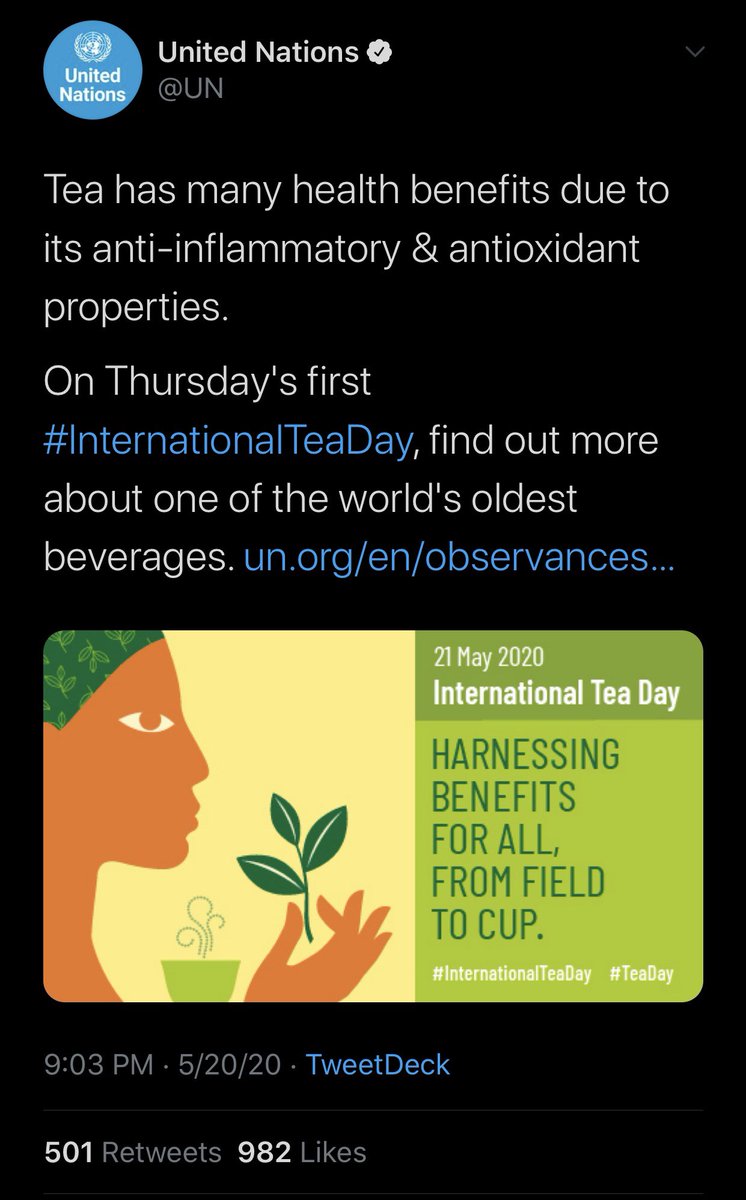I didn’t post on #InternationalTeaDay because I’ve been celebrating it on December 15. This day was recognized by #tea workers, #unions and activists in tea growing countries around the world since 2005. Some thoughts I’m writing through with collaborators in Sri Lanka #lka 1/
In 2003, labor organizers in Sri Lanka went to Chennai and then Hyderabad to meet with labor organizers in India to talk about #plantation workers rights. In those meetings, they agreed, not without struggle, that tea workers should have an internationally recognized day. 2/
In 2004, those same unionists and activists met with labor organizers from India, Malaysia, Vietnam, Uganda, Tanzania, Kenya, Malawi, and other tea growing countries in Lonavala two days ahead of the Mumbai World Social Forum (WSF). 3/
At this meeting, the participants put forth the Lonavala Declaration on labor rights and declaration to have an #InternationalTeaDay for all tea workers. 4/
The motion was then adopted at the Global Tea Conference at the WSF in Mumbai in Jan 2004. The forum asked for a day and Dec 15 was selected. It is significant because it references a historic worker revolt against a planter in Assam that ended on December 15. 5/
My collaborators in Sri Lanka made this video about the above history to commemorate the 2nd #InternationalTeaDay held in Kandy, Sri Lanka. You can watch it here: https://bit.ly/3c2zuiC ">https://bit.ly/3c2zuiC&q... 6/
Note: This day, #InternationalTeaDay December 15, was first and foremost about workers. It was about mobilizing to pressure companies, governments, consumers, and all supply chain stakeholders to see and prioritize workers’ rights 7/
The UN considered adopting it after the Indian govt brought it to the Intergovernmental Group (IGG) on tea in the UN Food and Agriculture Organization (FAO) in 2015 and after a subsequent endorsement by the FAO Committee on Commodity Problems. The UN resolution was Dec 21 2019 8/
The language of the resolution makes no mention of December 15 and the 15 years of work that came before it: https://documents-dds-ny.un.org/doc/UNDOC/GEN/N19/437/86/PDF/N1943786.pdf?OpenElement">https://documents-dds-ny.un.org/doc/UNDOC... 9/
This is expected. Still, I find it hard to see posts that declare this the first #InternationalTeaDay, especially posts from companies that refuse to afford workers better working conditions and living wages. 10/
What began as and was sustained by activists and unionists as a transnational workers movement is now a campaign about evaluatory metrics and an industrial complex of commodity problems. 11/
This history isn’t really new and folks have long written about the projectification and commodification of human rights and development in and outside the UN’s red tape. 12/
This new #InternationalTeaDay is also being taken by local activists as a great achievement—official UN recognition. In UN language, these days are “springboards” for development, for projects. https://www.un.org/en/sections/observances/why-do-we-mark-international-days/">https://www.un.org/en/sectio... 13/
For this breakdown on aid projects and their uneven value, see @FreeScotty and Mark Schuller’s article in @WorldDevJournal that I just taught in my humanitarianism class. It is brilliant: https://doi.org/10.1016/j.worlddev.2019.104731">https://doi.org/10.1016/j... 14/
All in all, I find it hard to stomach the springboard impetus. May 21 took many of my collaborators who long worked to manifest the first #InternationalTeaDay by surprise. They held no rallies, no meetings. Just an unplanned flurry of hashtags and pretty cups of #tea. 15/
So there are my 15 notes for 15 years fighting for #InternationalTeaDay Dec 15. Perhaps this is what “first” #InternationalTeaDay means now. But its worker-centered history was different. The slogan says it all: harnessing benefits for all from field to cup. #rememberhistory 16/

 Read on Twitter
Read on Twitter


